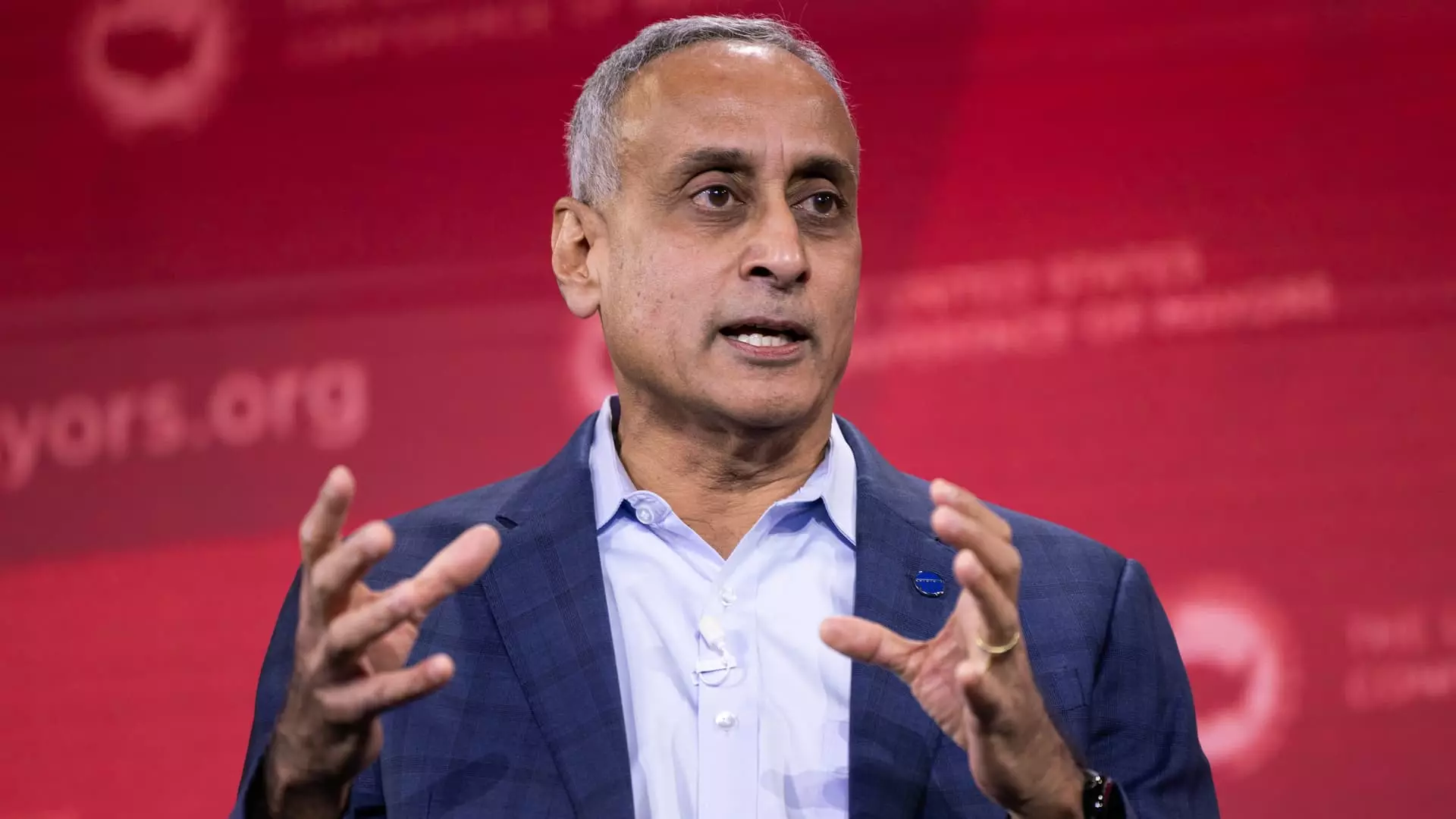Google is entering a pivotal period marked by a significant leadership change as Prabhakar Raghavan, the long-standing head of search and ads, steps down to embrace a new role as chief technologist. This transition, announced by Alphabet’s CEO Sundar Pichai, highlights both the company’s dedication to innovation and the need to adapt to an increasingly competitive landscape dominated by artificial intelligence (AI). This article delves into the implications of this shift and what it signifies for Google’s future.
Nick Fox, a veteran Google executive with a career spanning two decades, takes the reins from Raghavan. Fox’s extensive history within the company, particularly in shaping Google’s AI product roadmap, positions him as an ideal candidate to lead the Knowledge and Information division, which encompasses essential aspects of Google’s operations in search, advertisements, and e-commerce. His elevation to this prominent role signals Google’s intent to bolster its competitive edge, especially in the face of escalating rivalry from tech giants in the AI domain.
Like Raghavan, Fox is no stranger to the challenges presented by a rapidly evolving market. As the former vice president of product and design for Google Assistant, Fox possesses a nuanced understanding of how AI can enhance user experiences. Pichai lauded Fox’s collaborative spirit in his announcement, which underscores the importance of teamwork in navigating the complexities of modern technology.
Raghavan has been a central figure at Google, particularly since leading the Knowledge and Information unit since 2018. His tenure has witnessed fundamental shifts in how users interact with information online, and he has consistently urged teams to adapt to the realities of a changing market. His acknowledgment that “things are not like they were 15-20 years ago” speaks volumes about the need for continuous evolution in business strategies and technology.
Moving forward, Raghavan’s new position as chief technologist will allow him to provide technical direction and further cultivate a culture of technological excellence at Google. His experience and leadership skills will remain crucial as the company faces multiple antitrust lawsuits and the challenges posed by new AI competitors increasingly encroaching on Google’s traditional strongholds.
In addition to the leadership changes, Pichai announced significant structural adjustments in Google’s operations concerning AI development. The team working on Google’s Gemini app—an initiative aimed at developing AI capabilities for direct consumer engagement—will now be integrated with Google DeepMind. This strategic alignment is expected to enhance collaboration, streamline feedback loops, and facilitate quicker deployment of innovative models.
Pichai’s commitment to maintaining close ties between product teams and the platforms they develop is vital. By moving Assistant teams that focus on devices and home experiences into the Platforms and Devices unit, Google aims to foster more cohesive product development, ensuring that their offerings remain relevant in a technology landscape that is constantly evolving.
Google’s leadership transition from Raghavan to Fox reflects a broader commitment to innovation, adaptability, and strategic alignment within the company. As Google navigates a complex landscape marked by AI advancements and legal pressures, it is clear that these changes are designed to position the company at the forefront of the tech industry. With experienced leaders at the helm and a focus on collaboration, Google is poised to redefine its approach to search, ads, and information management in the coming years.

